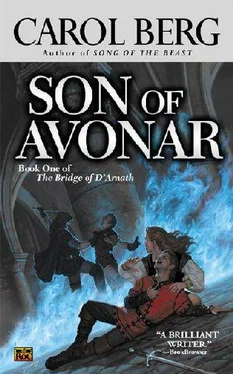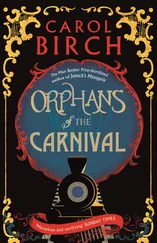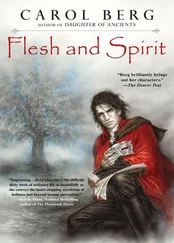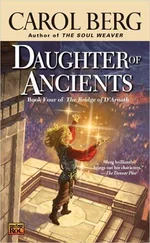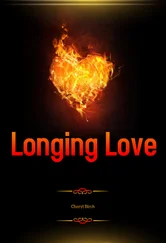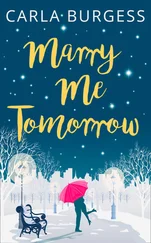Carol Berg - Son of Avonar
Здесь есть возможность читать онлайн «Carol Berg - Son of Avonar» весь текст электронной книги совершенно бесплатно (целиком полную версию без сокращений). В некоторых случаях можно слушать аудио, скачать через торрент в формате fb2 и присутствует краткое содержание. Город: New York, Год выпуска: 2004, ISBN: 2004, Издательство: Roc, Жанр: Фэнтези, на английском языке. Описание произведения, (предисловие) а так же отзывы посетителей доступны на портале библиотеки ЛибКат.
- Название:Son of Avonar
- Автор:
- Издательство:Roc
- Жанр:
- Год:2004
- Город:New York
- ISBN:0-451-45962-8
- Рейтинг книги:3 / 5. Голосов: 1
-
Избранное:Добавить в избранное
- Отзывы:
-
Ваша оценка:
- 60
- 1
- 2
- 3
- 4
- 5
Son of Avonar: краткое содержание, описание и аннотация
Предлагаем к чтению аннотацию, описание, краткое содержание или предисловие (зависит от того, что написал сам автор книги «Son of Avonar»). Если вы не нашли необходимую информацию о книге — напишите в комментариях, мы постараемся отыскать её.
But Seri, a Leiran noblewoman living in exile, is no stranger to defying the unjust laws of her land. She is sheltering a wanted fugitive who possesses unusual abilities-a fugitive with the fate of the realms in his hands...
Son of Avonar — читать онлайн бесплатно полную книгу (весь текст) целиком
Ниже представлен текст книги, разбитый по страницам. Система сохранения места последней прочитанной страницы, позволяет с удобством читать онлайн бесплатно книгу «Son of Avonar», без необходимости каждый раз заново искать на чём Вы остановились. Поставьте закладку, и сможете в любой момент перейти на страницу, на которой закончили чтение.
Интервал:
Закладка:
The wedding was in late summer. The pale-haired girl was lost in the opulent finery Evard had selected as suitable for his bride. She was short and thin, with a long, angular face and large eyes that blinked constantly. No one was impressed by her. I wished her a tolerant heart and a self-sufficient nature; she was like to need both.
Tomas attended the wedding, of course, handsome as always and appearing to have lost no standing with Evard because of my folly. He had stood as Evard’s champion three times already, and word had it that he was undefeatable. When we crossed paths near the refreshment tables, his face hardened bitterly. He spun on his heel and walked away. No healing there. Darzid, at his side as always, bowed, but did not follow my brother. He made as if to speak with me, but I excused myself politely before he could say anything. Martin was in attendance also. He greeted me with a formal bow, then turned back to another conversation. So it was not time yet.
Year 2 in the reign of King Evard
In the second autumn of my “exile,” I turned twenty-three. I returned home early on my birthday evening, no more lonely being by myself than in a crowd of people with whom I shared no sympathetic interests. I found increasing pleasure in practicing my music and thought it would be a satisfactory celebration of the day. When Joubert opened the front door for me, he pointed to the library. “A parcel has arrived for you, my lady. I’ve put it in the library. I’ll return to light the lamps as soon as I’ve hung your cloak.”
“No need for the lamps. I’m just going to play for a while.”
I entered the shadowy library, wondering who among my acquaintance had recalled it was my birthday. On the polished table was a long, thin bundle of green silk, tied with a gold ribbon. My pulse quickened. The rose was white this time, with a blush of pink at its edges, the crystalline dew-drop like a tear of joy at its perfection. I stood in the firelight, inhaling its sweet fragrance and reveling in its beauty—and even more in its meaning.
“I didn’t know whether red or white was more to your liking,” came a voice from a chair in the corner, “and having been tempered in the fires of the Windham debating society, I would be the last to risk your displeasure by making unsupported assumptions. So I thought I’d best come gather evidence for myself.”
I whirled about, ignoring the thorn pricks in my fingers, and out of the shadows stepped a sorcerer, come to conjure the desire of my heart on my birthday.
CHAPTER 8
“Aeren, who are you?”
The young man had turned away, not seeing what he had done and not hearing my urgent question. He was furiously launching rocks down the hillside.
I took a deep breath and went to take a closer look at the knife.
Jacopo croaked, “Don’t touch it! Oh, demonfire, Seri. There’s no crack there, no opening.”
“It’s all right, Jaco. It’s done.” But it was not all right. My eyes had not deceived me. The blade was firmly embedded in solid rock.
“Aeren,” I called again. Flushed and agitated, he dropped his stones and joined me beside the spring. I pointed to the knife, and he shrugged his shoulders, not surprised at all. What in the name of the stars had I stumbled onto? It became even more impossible to deny what had happened when Aeren yanked the knife from the stone. No mark, no slot, no chip marred the stone, and the weapon itself was neither scratched nor bent.
As I staged at the uncompromising evidence, the trees began to thrash in a rising wind, and shadows raced over the ridge top, draining the warmth from the wavering sunlight. Afternoon storms were typical of summer in the region, though drought had kept them rare the past four years. Yet no storm of nature’s making had ever afflicted me with such profound unease. I shuddered with the sudden chill and found myself looking over my shoulder and scanning the horizon. Stranger still, although the sun’s disk hung just over the hilltop, and the evening sky was unmarred by haze or cloud, neither my body nor Aeren’s nor Jacopo’s cast a shadow.
Aeren grabbed my arm and Jacopo’s, and, before we could question or protest, dragged the two of us down the slope toward the wood, shoving us roughly into the thick brush under the trees and motioning us to silence. I crouched low, and soon the entire physical substance of the world was reduced to the dusty twigs beside my nose and Aeren’s muscular arms, pressing me into the thicket. Dread seeped into my bones. Time twisted in a knot and turned in upon itself. The wind stank of smoke and ash—the scent of soul-searing desolation…
The weights lifting from my spirit and my back told me when the shadow had gone. A beam of sunlight pierced the forest roof, stinging my eyes. The still air smelled properly of hot pine needles and dry leaves, and a jay’s raucous chattering roused the other birds. Jacopo and I reacted as one.
“Aeren, what was that?”
“What madness is this, Seri?” I had never heard Jacopo afraid.
“I don’t know, Jaco,” I said. “I don’t know.”
A frowning Aeren paid no attention to my question, but urged us down the trail toward the cottage, casting frequent glances toward the ridgetop. I had no mind to argue with him. Whatever we had experienced, I wanted no more of it. But by the time we reached the meadow and the cottage, the event was already fading into insubstantial memory, a lingering revulsion like the taste of spoilt milk. What had really happened besides a cloud passing over the sun?
Aeren himself was of far more interest to me. One language I had not tried with him. I knew only a few words, for most were long buried in the depths of history, and I had believed no one still living in the world could understand them.
“Aeren, J’Ettanne y dise?”
Though he shook his head, his face came alive in a way I had not yet seen. I tried a few more words, and he recognized some, but not all, as if this was a language of which he, too, knew only fragments. Did he mean that he was not J’Ettanne or that he didn’t know? I couldn’t seem to make my question clear. One more thing to try. I formed a question in my mind with absolute clarity, sweeping aside every other thought and concern until the words stood alone like stone pillars in the desert, and then I took Aeren’s hand and laid it on my temple, inviting him, with the gesture Karon had taught me, to read what was inside. He yanked his hand away and shook his head angrily, then rapped his clenched fist rapidly against his brow. So he couldn’t do it, but he knew exactly what I meant.
I could hardly contain my excitement. Excitement—how strange it was. I should be terrified. No one could get wind of this or all of our lives would be forfeit: Aeren’s, mine, Jaco’s…
The old sailor sat on Jonah’s bench beside the cottage door, staring at the horizon, his wide hands braced stiffly on his knees. I sat down beside him and laid my hand over his gnarled fingers. His skin was cold.
“Jaco, I’m so sorry. I’d never have gotten you involved if I’d suspected this.”
“Can he truly take our souls? Was that what he was doing up there? Evil, Seri. I’ve never felt such evil.”
“I’m not sure exactly what happened up there. The first part, when he did the magic, yes. When you felt prickly and alive. But what came later—the stink, the feeling of snakes slithering up your back—that was outside my experience. But I swear to you that sorcery itself is not evil, and, though he is surely dangerous—wild, half-mad, I think—I don’t believe Aeren means us any harm.” A sorcerer… one of Karon’s people… How in the name of all gods had he happened to come here? “I’m not sure what to do.”
Читать дальшеИнтервал:
Закладка:
Похожие книги на «Son of Avonar»
Представляем Вашему вниманию похожие книги на «Son of Avonar» списком для выбора. Мы отобрали схожую по названию и смыслу литературу в надежде предоставить читателям больше вариантов отыскать новые, интересные, ещё непрочитанные произведения.
Обсуждение, отзывы о книге «Son of Avonar» и просто собственные мнения читателей. Оставьте ваши комментарии, напишите, что Вы думаете о произведении, его смысле или главных героях. Укажите что конкретно понравилось, а что нет, и почему Вы так считаете.
